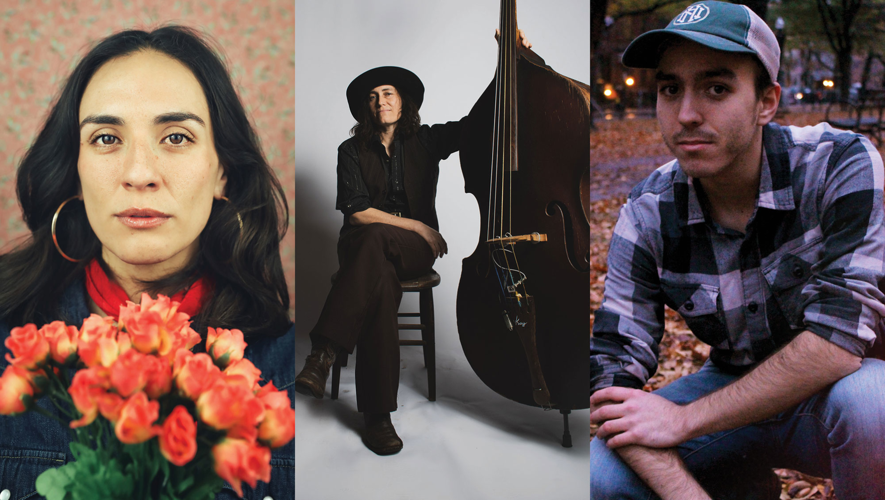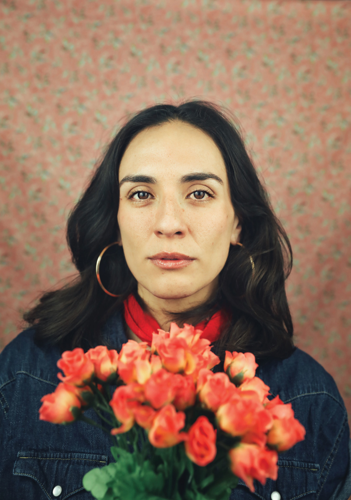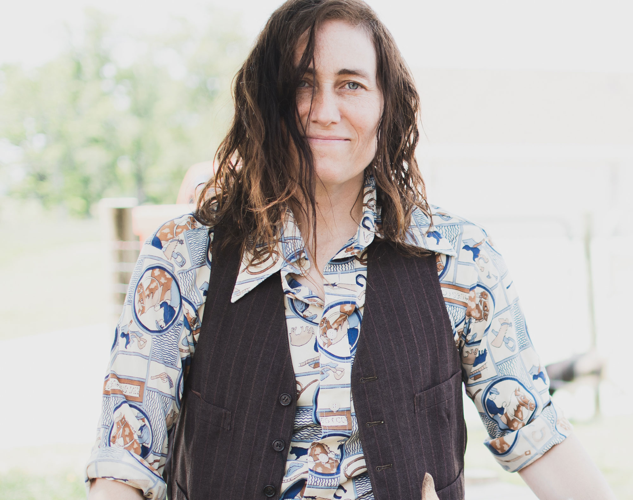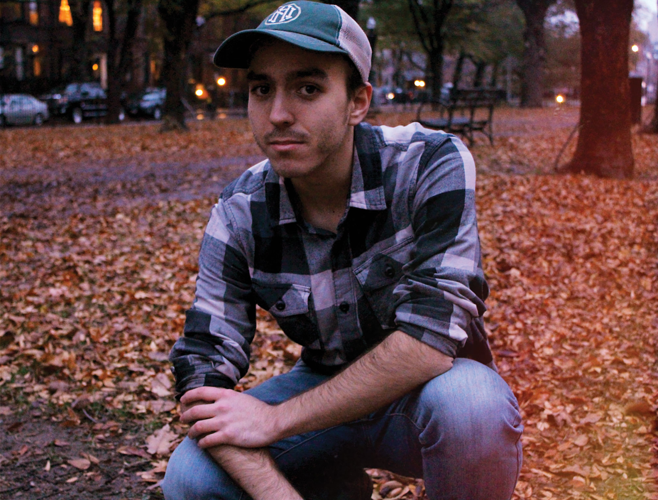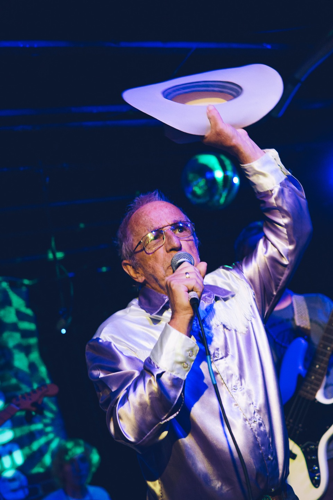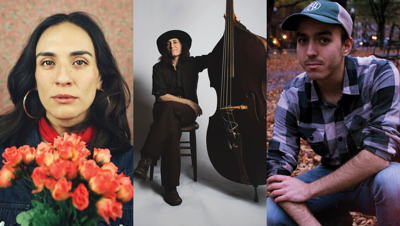
Mercy Bell
At first glance, you might get the impression that the genre called queer country is a kind of country music that exists in its own zone, apart from any concerns about commerciality. Without a doubt, queer country — because of its range of sensibilities and its variety of musical approaches — sounds familiar to fans of Americana, itself another capacious genre that seems to connect only fitfully with country music.
Looking at the landscape again, however, you may start to muse about country’s populist impulses and how mainstream country can betray them. In 2021, country music seems like a strictly conservative genre, and queer country artists call into question many of its long-held assumptions. It’s a fast-growing collection of styles, and it’s made its mark as both an expression of cultural and political values and as innovative music.
Taken as a whole, queer country doesn’t feel monolithic. It has musical range, but its politics can sometimes be elusive. As well, queer country isn’t immune to the kind of retro-leaning genrification that can limit the reach of many Americana artists. But that’s only part of the picture. There’s an experimental streak running through the work of artists like Nashville’s Waylon Payne, who is the son of country singer Sammi Smith and songwriter and guitarist Jody Payne. His latest full-length Blue Eyes, the Harlot, the Queer, the Pusher & Me is depressive and lyrical.
Meanwhile, Nashville singer and songwriter Mercy Bell sidesteps country almost entirely on her self-titled 2019 album. Bell’s songs are concise and imagistic, and she is adept at building on the usages of soul music and ’60s pop. The genre also makes room for artifice and irony, as in the work of Canadian singer Orville Peck, a theatrical performer who masks himself in the manner of 1970s cult singer and Elvis Presley sound-alike Orion.

Melissa Carper
Still, the demands of genre lay out guidelines many queer country exponents follow. For veteran singer, songwriter and multi-instrumentalist Melissa Carper, traditional country is a point of departure for a very canny singer-songwriter. Carper inhabits various country-adjacent styles on her full-length Daddy’s Country Gold, recorded with bassist and producer Dennis Crouch at Nashville studio The Bomb Shelter and out March 19.
“It’s got country, Western swing and jazz — kind of a combo of all that,” Carper tells me from her Texas home. She moved from Nashville to Texas in the fall after spending three years in Music City. Carper was born in Kansas and grew up in Nebraska, settling in Nashville after a previous Texas stint, in Austin.
“I guess I’ve been writing what you might call queer country for a long time,” Carper continues. “All of my love songs are about women, and others don’t have any gender in them. I find that a lot of gay people feel like they are excluded from country music. It’s really nice to not feel that way anymore.”
Daddy’s County Gold stays light on its feet, and Carper sings with ease. “Back When,” written as a country two-step, shows off her sly wit as she sings: “Back when you took off my cowboy boots / Why can’t back when happen again?”
Carper is a first-rate songwriter, as her new music demonstrates. One of her signature songs, “Billy & Beau,” first appeared on the 2020 album she recorded as half of the duo Buffalo Gals Band, Where the Heart Wants to Go. Written with Nashville alt-country singer Brennen Leigh, the song tells the story of the narrator’s love for a farm boy named Beau, who also catches the eye of their mutual friend Billy. A skilled singer and mandolin player, Leigh was born in North Dakota and grew up in Minnesota. She began writing with Carper a decade ago when both musicians were living in Austin. Leigh released her version of the song on her 2020 album Prairie Love Letter.
“To me it’s all just stories,” says Leigh. “To leave out a huge chunk of the population and their stories is ridiculous. I can’t speak from a gay standpoint, but I should have characters that aren’t straight, because there are characters in my life that are gay.”

Kristian Veech
Meanwhile, Nashville singer Kristian Veech favors pop country on his 2020 single “Running.” Veech grew up in Binghamton, N.Y., and studied at Boston’s Berklee College of Music before moving to Nashville in 2019. “Running” sounds like commercial country, and Veech’s music supports lyrics that describe small-town pressures on a queer man.
“We don’t really have a queer icon on the level of Carrie Underwood,” says Veech. “For the last few years, there’s definitely been some strides, but we still have a long way to go.” Veech raises a central point about queer country: The genre sports high-profile artists like Ty Herndon and Chely Wright, both of whom have come out as queer, but no single person dominates the conversation.
It’s not an easy genre to untangle, which makes Dale Henry Geist’s California-based online magazine Country Queer a valuable resource for fans. Geist and his staff have covered Carper, Veech and Bell, and the magazine also profiles mainstream artists like Payne. Geist launched Country Queer in September 2019 after working as a web designer for the online version of Americana magazine No Depression, and he’s overseen the rapid expansion of his publication.
“We were doing, I guess, a couple of articles a week, up until I lost my day job in April 2020,” Geist says from his home in Sonoma County, Calif. “I almost quit doing it altogether, because there’s no money in it. But I started paying attention to it full time, and pretty soon we were putting out five or six articles a week.”
Country Queer covers the genre efficiently — its monthly podcast has featured performers like Amythyst Kiah, a Black Tennessee singer who plays folk-blues. The magazine’s pluralist approach seems appropriate for a genre that counts Seattle band Lavender Country’s wildly experimental 1973 self-titled album as one of its foundational statements.

Lavender Country's Patrick Haggerty at The Basement East in June 2018
Talking to Geist, I get a feel for an aesthetic that makes room for insurgent folk, mainstream country and, say, Lil Nas X’s 2019 hit “Old Town Road,” cut by an Atlanta singer who has since come out as gay. It could be that queer country shares country and Americana’s expansionist goals.
Payne’s critically acclaimed Blue Eyes is one of the genre’s most high-profile current releases, but it may not represent what’s most interesting about queer country. The record seems self-regarding and, at times, insular. As Payne told Sound and Soul writer Aaron Irons in 2020: “I don’t care about being gay. It’s such a small part of my thing.”
It could be that Blue Eyes grapples with Nashville’s strictures as much as it articulates queer country’s politics. The genre, you might say, is well suited to the small-scale and the personal. You can hear how a non-queer-identified artist like Nashville’s Lauryn Peacock addresses queer culture in her song “Cameron,” a track on her forthcoming album Theology. The song calls out queer conversion therapy, and Peacock writes and sings in a post-folk style.
Similarly, Bell’s Mercy Bell has little to do with conventional notions about queer country. A Massachusetts native who has lived in Nashville since 2012, Bell turned the album into a pop masterpiece by harking back to Carole King and British Invasion rock. Her politics are indirect, which doesn’t mean she’s not telling her audience who she is.
“I’ve always said I’m a queer artist,” Bell says in a recent conversation. “My fans have always been OK with that from the get-go. I never had a coming-out moment with it.”

